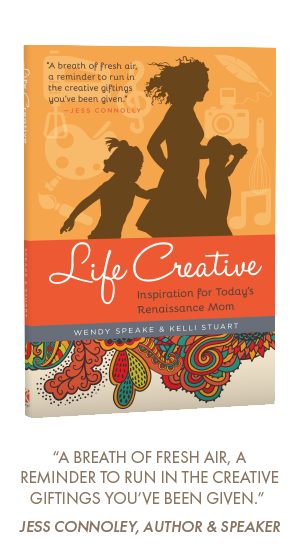responding to our husbands
/Responding to my newborn's cry at 2am was primal instinct. Crazy tired but never thinking, just answering the need. Waking up halfway down the hallway, already moving to his room. One sock on and the other stuck in my sheets, cause there was no other place for me but hunched over his crib with a "shhh shhh shhh". Back it up a few years, to the early days of marriage, when the instinct to respond to My Love's needs was immediate and inspired, passionate and pure. Responding to one another's touch happened without effort. Responding to one another's invitation, without thought, lead only by impulse. Responding was natural. And when we ran out of natural know how, we explored and found new ways to make one another respond further.
In the morning, after he left for work, I walked into the kitchen. There on the fridge was a post-it note:
He who finds a wife finds what is good and receives favor from the LORD.
(Proverbs 18:22)
I smiled and texted:
You're a lucky dude to have found me!
But it wasn't luck, it was a gift; him to me and me to him. And we responded to the gift, naturally. Responding not just in bed, but in life. A glass of iced tea brought to his office. And laughter. Him, running back into the house to grab my purse from the counter. Me, arranging that front closet that overflows each time he reaches for a coat. More than flowers, though flowers are wonderful, he served me. And I returned the favor. Responding and responding again and again, like water spilling over the falls, no choice just the flow, in the early days of marriage.
Then suddenly the gift ceased to feel like a gift, and responding to one another felt more like work. Hard work.
Last week I wrote a post entitled, "My Husband Never..." where I acknowledged this phenomenon; when the gift is exchanged for a burden to endure, and our in-love responses give way to dead air between lips, between sheets, between hands.
I'm no professional, nor a licensed marriage therapist, but I'm hanging on to my marriage for dear life after saying I do. After saying, in our pastor's office that first pre-married counseling session, "I won't divorce him, but I won't be a martyr either." I'd been raised by the first, witnessed plenty of the other, and knew down deep God's plan was for something more. Thirteen years into marriage and I'm starting to get it.
Marriage is an act of will.
Some couples believe that the end of the in-love experience means they have only two options: resign themselves to a life of misery with their spouse, or jump ship and try again. Our generation has opted for the latter, whereas an earlier generation often chose the former... Research seems to indicate that there is a third and better alternative: We can recognize the in-love experience for what it was -- a temporary emotional high -- and now pursue "real love" with our spouse... It involves an act of the will and requires discipline, and it recognizes the need for personal growth. Our most basic emotional need is not to fall in love but to be genuinely loved by another, to know a love that grows out of reason and choice, not instinct...
That kind of love requires effort and discipline.
(Gary Chapman, The Five Love Languages)
The in-love high that reaches out multiple times each day and night wasn't ever meant to endure, as magnificent as it is. At it's end is where real love begins. But if we do not survive the exchange, then there is nothing. Dead air.
That obsession was not meant to last forever. In the textbook of marriage, it is but the introduction. The heart of the book is rational, volitional love. That is the kind of love to which the sages have always called us. It is intentional."
(Gary Chapman, The Five Love Languages)
I am Recommitting to real love today. And the way I am doing that is by Recommitting to Responsiveness. Taking my eyes off of love, (if I feel it, if he does it) and putting my focus on intentional acts of responding to him.
Intentionally responding to our husbands is at the core of married love. It is not a trick to conjure short term passion, but the fantastic key to unlocking lasting love once the intense season of impulse is gone.
How much more powerful,
How much more committed,
How much more likely to carry us "to death do us part."
Application -
I began by choosing two acts of love each week to show my devotion to him and to our marriage. After a couple of weeks I realized how easy it is to say Yes to him after all. And so now I am looking for two responsive yes' each day! I am choosing to Say Yes to My Husband! I am choosing to respond to the needs I've perceived were his, but have been too inconvenient for me to answer. Those are the ones I'm saying yes to. Yes, because I am his gift and he is mine, and neither divorce or martyrdom are the answer.
Yes, to the friendship I know he misses, curled up for a movie late at night, after the children are asleep. Yes, to an orderly home, with laundry not just cleaned, but folded and put away. Yes to fun meals, with cloth napkins, twice a week. Yes, to weeding by his side, then surprising him in the shower because the boys are in their tree fort and we have a lock on our door. Yes to laughter, yes to a ride in the side car, bolted to his motorcycle. An act of will, each and every Yes. Till death do us part.
And the sweetest miracle of all, in real marriage after the honeymoon, is that emotions slowly resurrect again. One blessed Yes at a time.
How will you say Yes this week?






